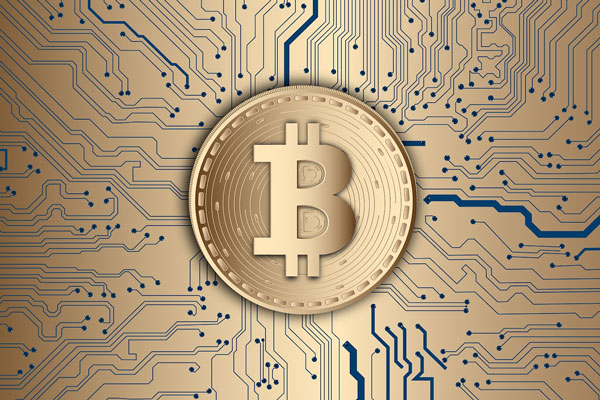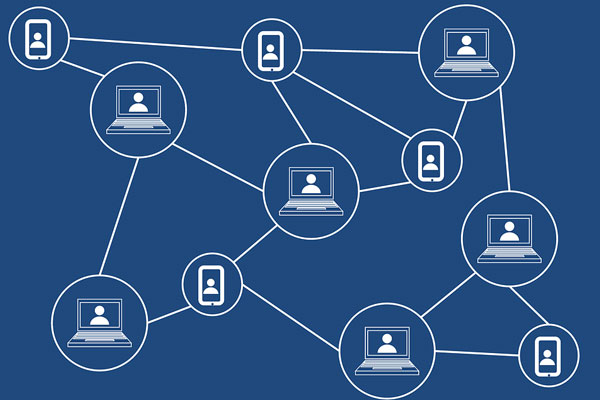Enrico Gallorini, CEO, GRS Research & Strategy, explores blockchain and looks at how it will impact our lives from a business perspective.
“For the first time, one internet user is now able to transfer a unique piece of digital property to another internet user”
In the last three decades we have experienced the power of technology in creating connections, even where previously it seemed impossible.
In particular, we have grown accustomed to widespread and near-constant internet access, that has provided us with the tools and opportunities to connect, create and share our ideas and experiences with the world.
This change has, of course, filtered down into the exhibition industry, where the role of organisers has become more and more focused on data, insights and customer-centric organisation.
This "peer-to-peer" way of thinking has changed our lives and our way to do business in general, because it has given us a new way of conceiving information, now extremely distributed and decentralized, and the ability to directly influence the world we live in.
Everyone has become an active participant and nobody is just an inert recipient. Thus, there are no longer any third parties involved in any process.
Unfortunately, however, the advantages of the digital age have been asymmetrical because the amount of data we have created is still owned by some big companies or governments, able to make it profitable or use it to spy on us, thus damaging our privacy. This in turn generated the demand for a true peer-to-peer value exchange, which started to involve the internet in another way.
We are witnessing a transactional evolution in internet experimentation: from the idea of a passive tool that people use as a container to find what they need, to the idea of an active tool that is evolving and requires a new definition of truth and trust in commercial transactions.
This new perception of the internet comes from people who aim to reduce the costs and power of monopolies in the financial services industry, which still own our data. They are trying to build a real "bottom-up" process, which could be heading us towards a "coin renaissance" thanks to the technology underlying the Bitcoin system: the blockchain.
What is a blockchain?
Blockchain is “the first digital medium to transfer value". On the web, different articles define it as a ledger, a protocol, a platform, or a distributed database. What we understand is that blockchain is the greatest innovation in computer science, but the idea behind it is very simple and can find an application in every aspect of our life.
One of the most fitting definitions refers to blockchain as "a number of record registers distributed globally, arranged in batches of data called blocks that use cryptographic validation to form a solid network". In simple terms, each block identifies and refers to the previous block, forming an uninterrupted chain which provides the technology its name.
The practical consequence of blockchain technology is that, for the first time, one Internet user is now able to transfer a unique piece of digital property to another Internet user. This means that the transfer is guaranteed to be safe and secure, everyone knows the transfer has taken place, and nobody can challenge the legitimacy of the transfer.
This new technology has the potential to be as significant a development as agriculture, electricity, rail transportation or the internet itself. We will need time to see the changes but they have already begun, and will stay forever. As a community and an industry based on enabling customer business, networking and human relations, we have to be aware that this new technology will change the way people in the future do business and network.
Books and databases that are open-source (meaning they can be freely downloaded, managed and used to develop new tools for managing online transactions), are available on millions of devices and allow secure and private transfer, as well as storage of valuable data. Therefore, it is a platform in which each of us can verify the reliability of information, and view its recorded history.
How could it impact our lives?
Intellectual Property: the blockchain provides a platform for those who create content where they can protect their works and, above all, receive direct compensation for each reuse of their work, since the data holders and related rights can store the metadata of each information;
Broker or multi-service management platform: connect suppliers, who intend to sell their (productive) surplus through a centralized platform, and users; in this way we collect fundamental information for commercial strategies, as the blockchain provides the means to create groups that can bring greater added value on the evolution of the same value chain;
Business collaboration: the blockchain-based system could replace the model currently based on key brokers to establish and coordinate most of the functionality. As a result, this technology helps to understand the evolution of work and its management within organizations.
In other words, the blockchain is not considered a disruptive technology but a foundational technology that will generate new business models and new ways of doing business.
Nevertheless, there may be some inconveniences. Blockchain requires considerable and constant computing power in multiple positions due to its distributed nature. It also requires a built-in validation that implies a continuous verification and consent of 50% + 1 of the nodes of the entire database network, and to complete this process an average length of time is required.
Beyond these disadvantages, the revolutionary idea behind blockchain technology is triggering parallel studies on different areas of application, and is transforming not only our institutions but also our day to day lives. Blockchain is coming, and we have to care about this new technology!








